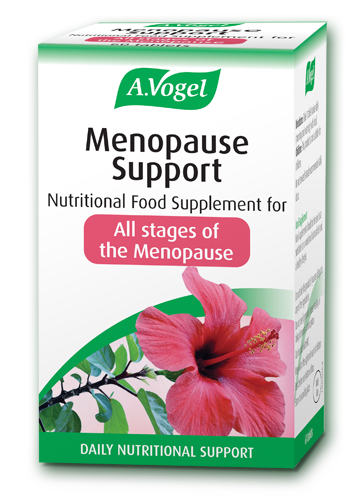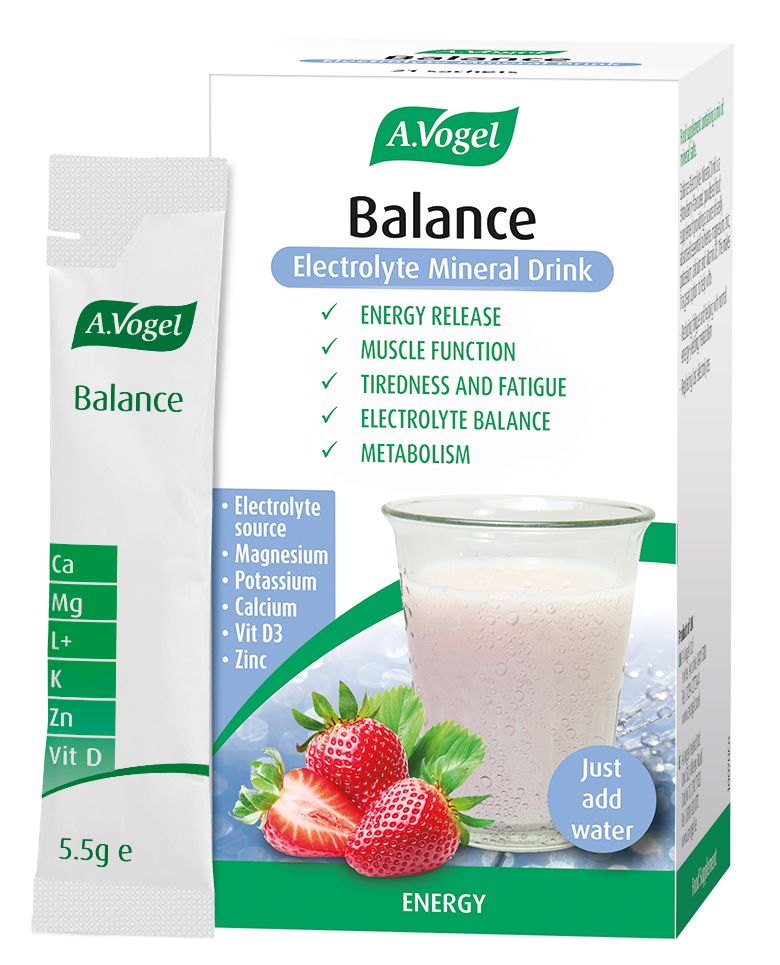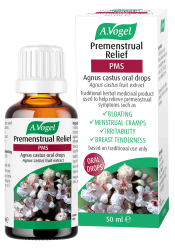1 - Teenage years and early twenties
What could be going wrong?
Your hormones have yet to settle
It can often take a while for your hormones to settle down during your teenage years and, in some cases, even into your early 20s. So, you aren’t alone if you’re experiencing slightly irregular periods and/or symptoms (skin complaints and cravings are often common complaints at this age too).
Now, it’s a common occurrence for us to panic, assume something is drastically wrong and head to the doctor, and options from your GP may include going on the pill. Whilst this may help in the short-term, please be aware that any symptoms you had beforehand may return after coming off the pill, so it can often be much more helpful to work on balancing your hormones naturally first.
Stressful studies could be having an influence
We shouldn’t underestimate the effects of stress on your system; it can have significant effects on your hormones and, ultimately, your menstrual cycle. Stress hormones released from your adrenal glands such as cortisol or adrenaline are inherently linked to your ovaries where your sex hormones are released. So, too much cortisol and it could eat up our progesterone stores, for example, and hello hormone imbalance!
Exam stress can also affect your sleep, which in turn can affect your blood sugar levels. This can risk exacerbating a long list of PMS-related symptoms including food cravings, mood swings and bloating; definitely not what you need if you’re trying hard to study.
Dodgy diets
During our student years, it can be easier or more tempting to fall off the bandwagon a little in terms of your diet but this could have an impact on your cycle too. What’s one of the main culprits? Sugar! Sugar is definitely one for watching: it can affect insulin which, in turn, can have a more a direct effect on your sex hormones and give rise to issues such as polycystic ovaries (PCOS). Try to avoid too many sweet treats and swap in some more fresh foods instead, including fruit or some roasted nuts or seeds.
What can be done to help?
Keep track
Keeping track of your period and the associated symptoms can be really useful for helping to get to the root of the problem when it comes to PMS. If you have an idea of how often you have a period and which symptoms you experience, you can have a better shot at getting your symptoms back on track. Watch my video to help enhance your understanding of what might be going on when it comes to problem hormones.
Prioritise your time
Whilst student life can risk being a little hectic, it’s still important to take time for you – taking time to relax and de-stress can have a positive impact on your cycle in more ways than one.
Whether it’s seeing friends, relaxing in a bath, or reading a good book that isn’t work-related, getting a nice balance will put you in good stead for the future and will translate into happier hormones too. Prioritising sleep is important too, as getting a good night’s sleep will help to support your energy levels, mood and blood sugar levels.
Boost your system
If you aren’t eating well, you may be pleasantly surprised at the difference a better diet makes to the regularity of your cycle and all the troublesome symptoms we can experience, from headaches to cramps. Aim to focus on more plant-based foods, and try to limit packaged foods, processed or fatty meat, caffeine, sugar and alcohol.
You can also supplement with B vitamins, magnesium, and anti-inflammatory omega-3 oils which are some key nutrients thought to help manage a number of PMS symptoms, from painful cramps to headaches. Try our Balance Mineral Drink for a quick and convenient fix, suitable for 16s and over.
A.Vogel Balance Electrolyte Mineral Drink with Vitamin D3, Magnesium, Zinc, Potassium and Calcium.
£22.49 (21 x 5.5g sachets) In Stock Get it tomorrow, 5th July.
2 - Young adult years

What could be going wrong?
The influence of hormonal contraceptives
During our early adult years, hormonal contraceptives are inevitable for many of us who want a reliable method for avoiding unwanted pregnancies. However, many of us are guilty of not really understanding what method we’re using or the impact this could potentially be having on your cycle.
Depending on what method you’re on, from the mini pill to the coil, it’s important to keep an eye on your symptoms and try to understand how the balance of hormones they provide might be affecting you. This isn’t to say we shouldn’t use them, but selecting the best type to suit our individual needs is super important.
Busy regimes
It’s common to experience a change in our monthly symptoms when coming off hormonal contraceptives, so this may be a more likely occurrence at this stage in our lives. Further along the line, it can also take a good while for our hormones to settle after having a new baby. Surprisingly, many women worry about this, but let me assure you, your period not returning whilst you’re feeding your baby is quite natural; we know breastfeeding can influence our hormones.
If a busy family life is getting the better of you, you may also be tempted to rely on a quick caffeine hit now and again to help keep you awake! However, this habit will only have adverse effects on your blood sugar levels and your mood, so not a good idea if you’ve historically suffered at the hands of PMS.
Finally, your stores of magnesium can easily become depleted if you’re busy, stressed, on medication or loading up on caffeine, so topping up on this key nutrient can help manage a number of symptoms, from achy cramps to supporting a better night’s sleep.
Horrible hormones
Whether or not we’ve had babies or tampered with hormonal meds, in some cases it can be in our early adult years that other tricky symptoms can emerge. Endometriosis, fibroids and PCOS are common examples of issues which can be driven by hormone imbalances.
However, if you suspect something isn’t quite right, please don’t fret. Understanding what’s happening in our bodies is half the battle and there are steps you can take to help manage those symptoms. Always go to the doctor if you’re in any doubt and click the links above for more info.
What can be done to help?
Don’t be afraid to approach your doctor
Although hormonal contraceptives are commonly prescribed, it’s your right to return to the doctor if you don’t suspect the particular method is right for you. Certain methods such as the coil can be administered for up to a period of 3 years at a time, so don’t suffer in silence if something isn’t quite right during this time!
In some cases, the balance of hormones might not be quite right (monthly or even more long-term symptoms are a sure sign of this) so don’t hesitate in booking an appointment to discuss this if need be.
Don’t put too much pressure on yourself
After coming off the pill, or having a baby, it’s quite normal for your periods not to return to normal straight way. In fact, a hormone imbalance can crop up at any time as a result of changes in our diet, lifestyle, body weight, or as a result of different medications.
Don’t put too much pressure on yourself for things to revert back to normal straight away - stress will only risk exacerbating the situation. If your cycle doesn’t return to normal after up to a year of changing your contraception (yes, it really can take this long!) or if you see another noticeable change in your regime as mentioned above, then it might be time to consider chatting to a practitioner or your doctor. In the meantime, practical tips such as getting into good habits such as drinking plenty of water, eating well and relaxing can often help to get your hormones back on track sooner rather than later.
Get to grips with anaemia
If you struggle with heavier periods, first and foremost you may need a gentle iron tonic to make up for the blood you’re losing. Anaemia can make you feel quite lousy, tired, achy and dizzy so getting some iron back in is vital. However, if your symptoms persist you should always go to your doctor in case a dose of medication is needed to curb the bleeding initially.
 My Top Tip:
My Top Tip:
Remember, longer-term, investigating the root of the cause is important. If a hormone imbalance such as oestrogen dominance is at play, a herbal remedy such as Agnus castus may help to regulate your cycle.
3 - In the approach to the menopause

What could be going wrong?
Oestrogen is fluctuating
Fluctuating oestrogen is what is thought to give rise to the vast majority of symptoms during the approach to the menopause. When your periods eventually stop for the last time we expect that oestrogen levels have eventually started to settle, but they can fluctuate along the way and give rise to a long list of symptoms; from heavy, erratic periods to hot flushes.
Fatigue is a common symptom
Very much like our teenage years, your body is going through lots of changes by the time we’re heading towards menopause and this can really take it out of us, leaving us feeling tired and lacking in energy.
Other contributing factors if you’re struggling with fatigue can be a lack of sleep (especially if night sweats are an issue) and anaemia is one to watch out for too. Especially in the earlier stages of the menopause, heavy, more frequent periods can often crop up which is a common risk factor. The approach to menopause is also a common time for your thyroid gland to go offline (cleverly all your endocrine glands are linked). This is another check that is worth getting with the doctor.
Weight gain can be an issue
Together with problem periods, bloating and weight gain around the middle may also be getting you down as you wrangle with those menopausal symptoms. Stress can easily contribute to weight gain around the middle, as can doing too much in terms of strict diet or exercise regimes – this can in fact have the opposite effect on your weight loss efforts!
What can be done to help?
Support your oestrogen naturally 
Our Menopause Support contains an extract of soy isoflavones which can help to gently support oestrogen. As fluctuating oestrogen can give rise to a number of symptoms during this time, by gently supporting your oestrogen levels you can help to manage a number of the different symptoms we associate with menopause.
Employ some extra support
Whilst your hormones fluctuate in the lead up to the menopause, the resulting symptoms can be quite widespread and varied. Monthly symptoms are more typical of PMS but if your symptoms start to become more irregular or constant, this could be a sign that it’s peri-menopause instead.
As your body adjusts to these changes, supporting your system with some extra nutrients, including a natural, liquid iron supplement (if heavy periods are troubling you), Balance Mineral Drink (if fatigue is getting you down) and Kelp if you suspect your thyroid could do with an extra dose of iodine to help keep it ticking over, can all prove really useful.
Slow down and relax
At this time in your life, you have permission from us here at A.Vogel to slow down and take care of yourself! Whilst supporting your body with some extra nutrients as above is a good start, some practical tips can also help to manage stress and anxiety which often come hand in hand with this stage of our lives. Even if it’s just 10 minutes each day, take some time to get some fresh air, do some gentle exercise or relax with a book or with some music.
Overloading on stress can put pressure on your adrenal glands which, in turn, can contribute to fatigue or other issues such as excess weight gain. Water is key for supporting everything from your mood to your weight. Aim to drink at least 1.5l of plain, still water daily – so simple, yet so effective. If you feel you need something a little extra to help you relax, I’d recommend trying our Passiflora tincture twice daily, in a small splash of water.











